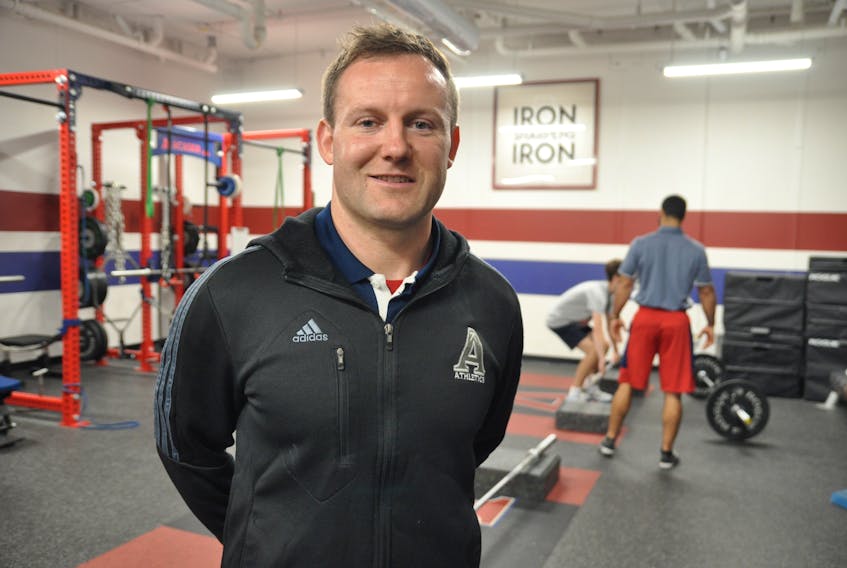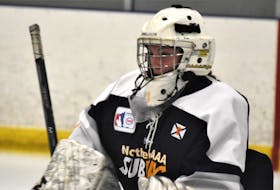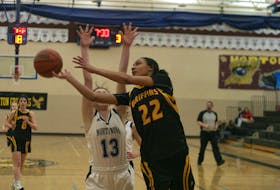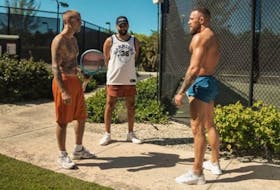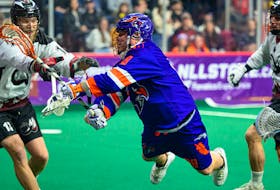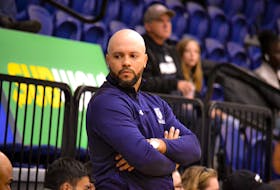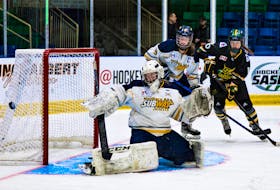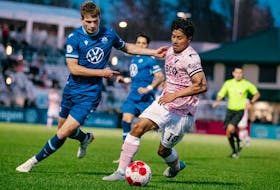WOLFVILLE – Retired pro football player Elliott Richardson says strength training would have helped make him not only become a more resilient football player, but a better one overall.
This is why he’s set up shop in Wolfville with his Acadia Performance Training Inc., a strength training program designed to strengthen athletes’ ability to withstand high impact sports, and prevent injuries.
The program has grown from 2 athletes to over 120, and continues expanding as more athletes, coaches and parents realize the benefits of strength training for athletes whose gains include long term resiliency, and longer careers in sports, according to Richardson.
“At the end of day, if you become faster, more powerful and better conditioned, your chances of being successful are fundamentally increased – that’s all this really comes down to,” he says.

A ‘sport non-specific’ approach
Richardson founded the training program at Acadia University in 2012 after playing football with the Axemen and then professionally in the Canadian Football League.
He says his own limitations during his relatively short professional career, along with feelings that he’d have benefitted from general strength training, inspired him to create a training model designed to give all athletes the tools they need to excel in any sport.
“I always felt like I needed some general training to round me out as an athlete. Practicing one set of skills and using one set of muscles is risky, and I wanted to address that,” he says.
The program therefore uses a sports non-specific approach and works with athletes of all disciplines on strengthening their overall general fitness, focusing on both speed and strength.
Richardson says the emphasis is to start strength conditioning at an early age – something he says scares some parents due to old stigmas about drills like weight training.
But Richardson wants parents to know these drills are at the core of his methods for a reason: they deliver the best results and are far from dangerous.
“It’s the idea that strength training is risky, leads to injuries and can stunt growth. That’s just not the case,” says Richardson.

“In fact, studies actually show the injury rate is significantly less than any other sport.”
Resiliency leads to more success, fewer injuries: Richardson
Another hallmark of the program is its emphasis on resiliency, as it works with each athlete to increase their ability to bounce back from the strain sports can cause.
Strength training, agility drills and basic flexibility exercises are used by Richardson to produce athletes in whom the risk of injury is reduced. He says this applies even to something as high-impact as running because of stronger muscles, and stronger joints.
“A lot of it has to do with the impacts of landing – this is where athletes get injured most often,” says Richardson.
“Research shows improving basic strength – thinking of flexibility, stability – helps an athlete be better able to absorb forces and accept strength.”
Richardson’s training is also designed specifically to counteract early sports specialization, which he says sees many young athletes playing a single sport year-round.
He says this can lead to the overdevelopment of certain muscles, and injuries down the road.
This is why he encourages athletes not only to join his program, but to also enlist in different sports throughout the year to build up that resiliency, and to keep them from burning out.

“The challenge is not to make someone stronger, fitter and faster – the harder part is choosing exercises that promote better athleticism overall,” says Richardson.
'No one was doing this'
When he was presented with a one-way ticket after retiring from the CFL, Richardson says he knew he was headed back to Nova Scotia.
Thinking of his own days playing sports at Acadia, Richardson knew there was a solid pool of athletes – whether students at Acadia hoping to head for the pros, or athletes playing high schools sports – who could benefit from such a program.
And now, as the program continues expanding, Richardson feels he was right in bringing it to Wolfville, and to athletes outside the province’s urban core of Halifax.
“It’s an underserved area where I knew we could make an impact. I thought of that as a positive, because no one was doing this,” he says.
He tells all of his athletes that their most important physical ability is availability – no matter what level of team they play on.
“If you can’t be there, if you don’t show up – it doesn’t matter how good you are,” he says.
“This is why resiliency is so important.”

